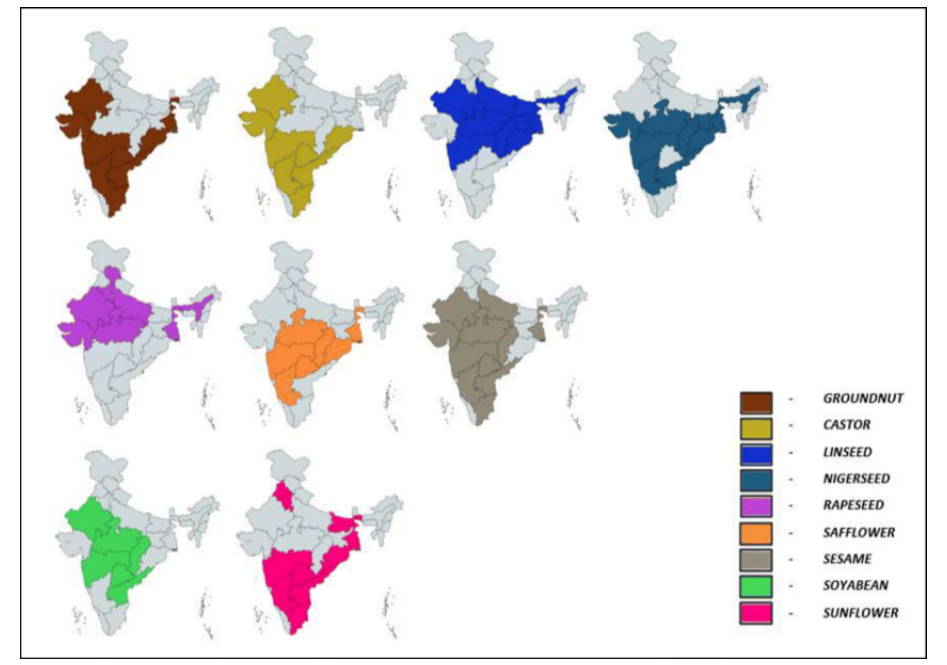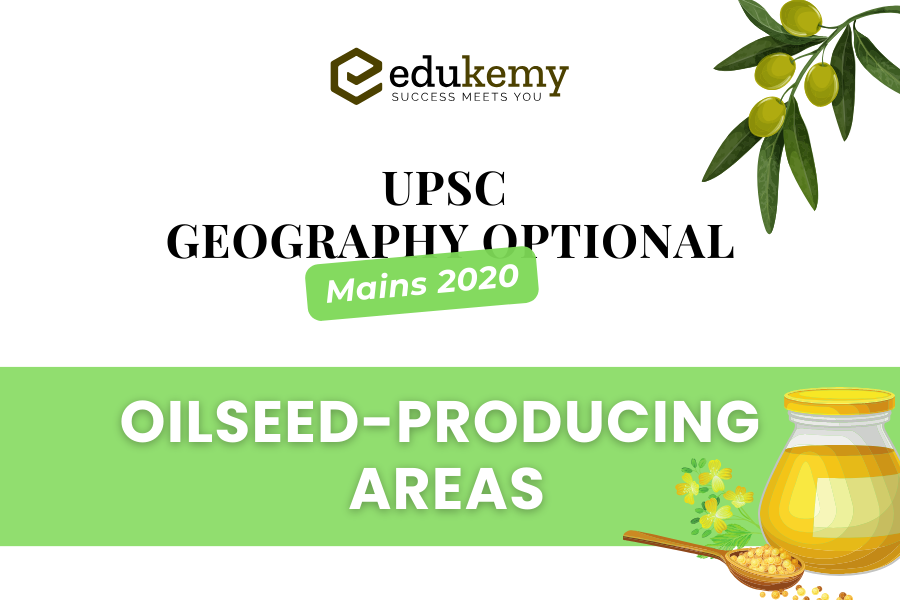
India is one of the world’s largest producers of oilseeds, which include crops like mustard, soybean, groundnut, sunflower, and sesame. Major oilseed-producing areas are concentrated in specific regions due to favorable climatic and soil conditions. For example, Gujarat is renowned for groundnut production, Madhya Pradesh leads in soybean cultivation, and Rajasthan is a key player in mustard production. Additionally, states like Maharashtra, Karnataka, and Andhra Pradesh also contribute significantly to oilseed output, particularly sunflower and safflower.
Contents
Introduction:
India is one of the leading producers of oilseeds globally, contributing significantly to the edible oil industry. The country’s diverse agro-climatic conditions have facilitated the cultivation of various oilseed crops, making it a crucial player in the global market.
Body:
Oilseed Producing Areas in India:
- Western India: States like Gujarat, Maharashtra, and Rajasthan are major producers of oilseeds such as groundnut, soybean, and mustard due to their favorable climatic conditions.
- Central India: Madhya Pradesh and Chhattisgarh are significant contributors to the oilseed production, particularly soybean and mustard.
- Southern India: Karnataka, Andhra Pradesh, and Tamil Nadu cultivate oilseeds like groundnut, sunflower, and sesame, utilizing the region’s irrigation facilities.
- Eastern India: States like West Bengal, Odisha, and Bihar are gradually increasing their oilseed cultivation, focusing on crops like mustard, soybean, and sesame.

Measure to promote edible oil industry:
- Enhanced Research and Development: Invest in research to develop high-yielding oilseed varieties adaptable to different regions.
● Like the development of hybrid varieties of soybean in Madhya Pradesh and Maharashtra. - Subsidies and Incentives: Provide subsidies on seeds, fertilizers, and machinery to encourage farmers to cultivate oilseeds.
● For example, the National Mission on Oilseeds and Oil Palm (NMOOP) provides subsidies for oil palm cultivation. - Extension Services: Strengthen extension services to educate farmers about modern techniques, optimal planting times, and pest management practices.
● This can be seen in the Farmer Producer Organizations (FPOs) model, which provides knowledge sharing platforms. - Infrastructure Development: Improve infrastructure for storage and processing facilities, reducing post-harvest losses and ensuring better quality control.
● For instance, the construction of modern oilseed processing plants in key production areas. - Promotion of Contract Farming: Encourage contract farming agreements between farmers and agribusiness firms to ensure a stable market and fair prices for oilseed crops.
● Companies like ITC and Cargill have been actively engaging in contract farming for oilseeds. - Financial Support: Facilitate easy access to credit and insurance schemes tailored for oilseed farmers, reducing financial risks associated with cultivation.
● Initiatives like Kisan Credit Card (KCC) and Pradhan Mantri Fasal Bima Yojana (PMFBY) provide such support. - Value Addition and Processing: Encourage value addition through processing facilities to produce various edible oil products, like branded cooking oils, which fetch higher prices in the market.
● An example is the promotion of mustard oil brands from Rajasthan and Uttar Pradesh. - Promotion of Alternative Oilseeds: Promote cultivation of non-traditional oilseeds like sunflower, sesame, and safflower, diversifying the market and reducing dependence on imports.
● For instance, initiatives to promote sunflower cultivation in states like Telangana and Karnataka.
Conclusion:
By implementing these measures, India can not only boost its domestic production of edible oils but also reduce its reliance on imports, ensuring food security and economic stability in the long run. Continued investment in research, infrastructure, and farmer support schemes will be crucial for the sustainable growth of the edible oil industry in India.
In case you still have your doubts, contact us on 9811333901.
For UPSC Prelims Resources, Click here
For Daily Updates and Study Material:
Join our Telegram Channel – Edukemy for IAS
- 1. Learn through Videos – here
- 2. Be Exam Ready by Practicing Daily MCQs – here
- 3. Daily Newsletter – Get all your Current Affairs Covered – here
- 4. Mains Answer Writing Practice – here

